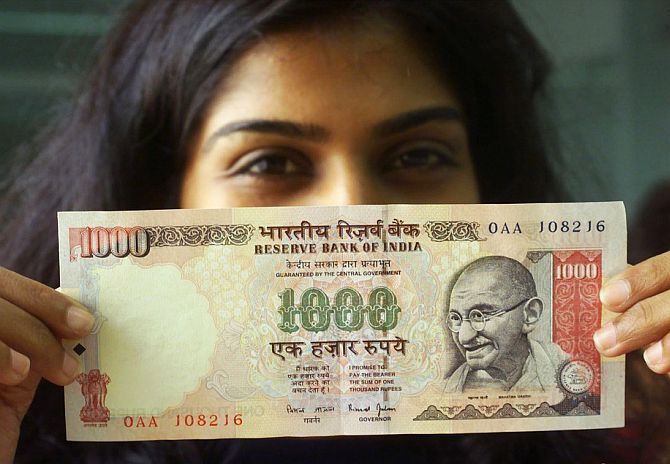In last year's budget, Finance Minister Arun Jaitley stretched the timeline for bringing the federal budget deficit down to 3 percent of gross domestic product to three years.
 India should not loosen its fiscal deficit targets in the forthcoming budget, Prime Minister Narendra Modi's top economic adviser Arvind Panagariya told Reuters, saying a windfall from cheap oil would help the government keep its spending promises.
India should not loosen its fiscal deficit targets in the forthcoming budget, Prime Minister Narendra Modi's top economic adviser Arvind Panagariya told Reuters, saying a windfall from cheap oil would help the government keep its spending promises.
"I personally don't think we should be tinkering with the deficit as a percentage of GDP," Arvind Panagariya, who runs the government's Policy Commission, said in an interview.
In last year's budget, Finance Minister Arun Jaitley stretched the timeline for bringing the federal budget deficit down to 3 percent of gross domestic product to three years.
As part of that strategy, the deficit target for the year to March 31 was set at 3.9 percent of GDP, and for 2016/17 to 3.5 percent.
Panagariya's views diverge from those of Arvind Subramanian, Jaitley's economic adviser. In a mid-year economic review last month, Subramanian favoured a review of the 2016/17 target to reflect hikes in public pay and weak private sector investment.
"Luckily, on the positive side, oil prices have come to the rescue, and - very wisely - a large part of this has been captured in the increased revenues for the government," Panagariya said.
"So I think that, without actually going back on the expenditure commitments, it seems to me still feasible to meet the fiscal target as it's been set."
Oil prices slumped on Monday below $28 per barrel, the lowest since 2003, due to worries about over-supply at a time of weakening global demand.
Jaitley faces a challenge to achieve the deficit target in the current financial year because nominal GDP growth - which drives tax revenues - has slowed to around 6 percent from earlier estimates of 11-12 percent. He is due to present his budget by the end of February.











